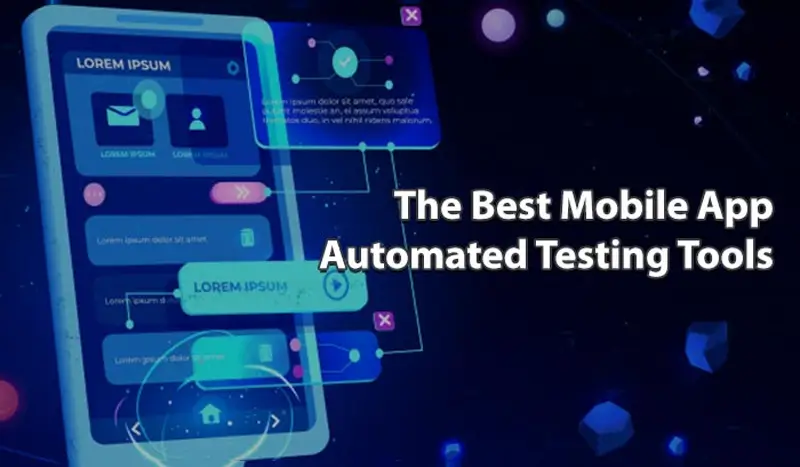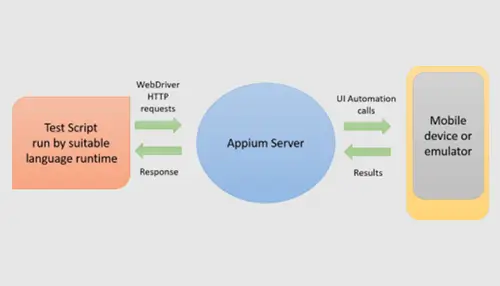Mobile Automation Testing has experienced drastic changes over the past few years. Test automation is the key facilitator for nimble software developments and along with continuous integration and delivery. The topmost companies are at a huge competition among themselves for developing the best suitable automation tool that will satisfy the industry needs.
There are enough mobile automation testing tools from open-source to the commercial tools available in the market according to the user interest. Each of them has different pros and cons. Taking into consideration the budget, experience, and demand of your project; you can select a tool that is most suitable for your business.
Why Mobile App Automated Testing Tools?
Mobile App Automated Tools compliments to Manual-Testing-Tools instead of overpowering or replacing it. Automation testing needs a proper strategy for planning, monitoring & controlling all the activities related to automating the application. Like manual testing it also needs expert developers with appropriate skill set. When the tools are implemented precisely, Mobile App Automated testing can become an asset to the entire firm/organization.
Best practices for Mobile App Automated Testing:
To get the best results out of automation testing, certain practices should be followed such as-
1. Decide what cases to be automated: Certain apps respond very positively to manual testing whereas certain test performs better when automated. So you have to check whether the application is suitable for automated testing or not before going for automated testing.
2. Design tests before automating: A competent test design helps to identify all visible defects hence the designing of tests should be made with possible diligence.
3. Regularly Test: Testing should be continued on a regular basis. If you will go for early testing it will be easy for you to identify the bugs early. It will be very easy and cost-effective to fix these bugs in the long run. To reap the best result, you have to conduct continuous testing.
4. Select the appropriate automated testing tool: As I mentioned above, several mobile app automated testing tools are available in the market so it may sound very difficult to choose the appropriate one that will best suit your overall requirements.
5. Create good quality test data: For precise productivity of an automated testing tool, the testing tool must be able to interpret the contents of the data files correctly. It is very monotonous to create test data for automated tests. Hence enough time and effort should be invested for the same. It may ease the process of writing automated tests.
6. Use test techniques: Certain testing techniques, such as equivalence partitioning, state transition testing, pairwise testing, decision-tables, boundary value analysis, can be attached for precise results in automated testing.
The basic mistake that the tester makes is not selecting the appropriate testing tools as per their requirement, which in turn, would cost them a lot in terms of productivity.
To avoid such issues you must know what the areas you are considering and what are the tools that will best suit your requirements. There are certain best mobile app automation tools that are being popularly used worldwide.
How to Select the Best Automation Tool:
There is no such best tool available in the market. The tool that fits your need and is compatible with your mobile test automation project task is the best tool for you. These following are the steps that will help you chose a suitable one for your firm.
1. Identify the tests that need to be automated.
2. Research and analyze the automation tools that meet your automation needs.
3. Conduct a comparison test for two best tools as per your requirements and budget.
4. Based on the results of the comparison, shortlist one tool.
5. Discuss the chosen automation tools with other stakeholders, explain the choice, and get their approval.
6. Proceed to test automation.
Let’s get started!
1. Kobiton: Kobiton provides full control of real mobile devices to users during the testing. It supports multi-touch gestures, orientation, and GPS simulations along with the camera and speaker control as well as device connection management. With the help of automatically generated activity logs, it captures all the actions performed during a testing session only, so that issues can be identified and resolved as soon as they are noticed.
2. Test Project: It is a cloud-based, community-powered test automation platform and it enables users to test Web, Android, and iOS applications on all operating systems seamlessly. You can easily collaborate with your team using Selenium and Appium for ensuring quality and speed.
3. Testing Bot: It provides real mobile device testing in the cloud. It helps to run automated and manual tests on physical Android and iOS devices through its device farm.
4. MonkeyRunner: It provides an API for writing programs that can control either an Android device or an emulator from outside of the Android code. Its level of performance is quite similar to Robotium. Here the tests are written in Python. One may use a recording tool to create a test.
5. KIF: KIF is specially designed for iOS automated testing. It is a mobile automation testing framework that integrates directly with XCTests.
6. Testroid: It is a cloud-based mobile application testing tool that helps to save costs used for application development and speeds up the time to market the product reducing the operational as well as unpredictable costs. It is the best way to test your mobile application against various real Android and iOS devices having different platforms and OS versions.
For more information regarding mobile automation tools and its usage, don’t forget to visit our blog page- https://www.oditeksolutions.com/mobile-app-automation-testing/
Conclusion:
Mobile App Automation Testing is the most widely accepted framework. It is quite easy to access the tool. The most valuable feature that is supported by this is cross-platform compatibility which means it eases the complexities that were faced while using cross-platform solutions like Appium for automation testing.
We, at Oditek Solutions, will provide you a wide range of well-trained testers who will help you choose and access the best-automated testing tool for your organization that will best suit your requirements. We also have a very quick and responsive support team who will address all your issues and concerns regarding automated testing and its tools.







